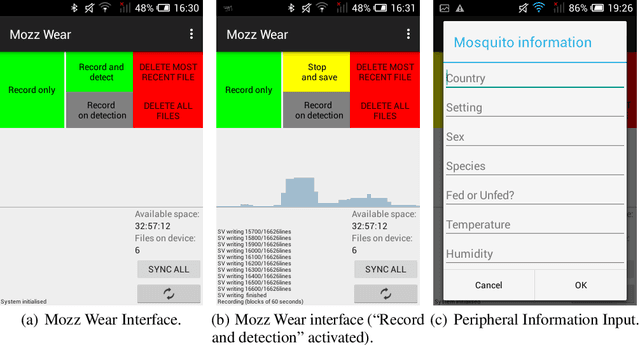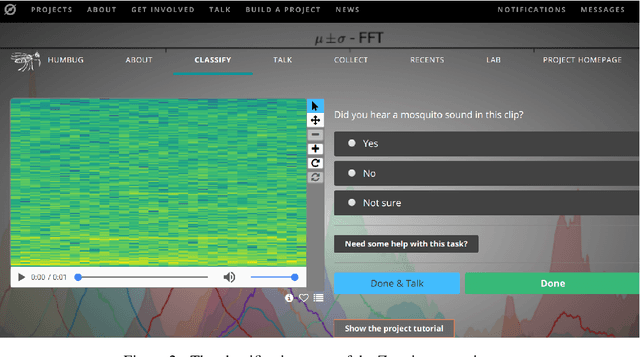Mosquito detection with low-cost smartphones: data acquisition for malaria research
Paper and Code
Dec 06, 2017


Mosquitoes are a major vector for malaria, causing hundreds of thousands of deaths in the developing world each year. Not only is the prevention of mosquito bites of paramount importance to the reduction of malaria transmission cases, but understanding in more forensic detail the interplay between malaria, mosquito vectors, vegetation, standing water and human populations is crucial to the deployment of more effective interventions. Typically the presence and detection of malaria-vectoring mosquitoes is only quantified by hand-operated insect traps or signified by the diagnosis of malaria. If we are to gather timely, large-scale data to improve this situation, we need to automate the process of mosquito detection and classification as much as possible. In this paper, we present a candidate mobile sensing system that acts as both a portable early warning device and an automatic acoustic data acquisition pipeline to help fuel scientific inquiry and policy. The machine learning algorithm that powers the mobile system achieves excellent off-line multi-species detection performance while remaining computationally efficient. Further, we have conducted preliminary live mosquito detection tests using low-cost mobile phones and achieved promising results. The deployment of this system for field usage in Southeast Asia and Africa is planned in the near future. In order to accelerate processing of field recordings and labelling of collected data, we employ a citizen science platform in conjunction with automated methods, the former implemented using the Zooniverse platform, allowing crowdsourcing on a grand scale.
 Add to Chrome
Add to Chrome Add to Firefox
Add to Firefox Add to Edge
Add to Edge